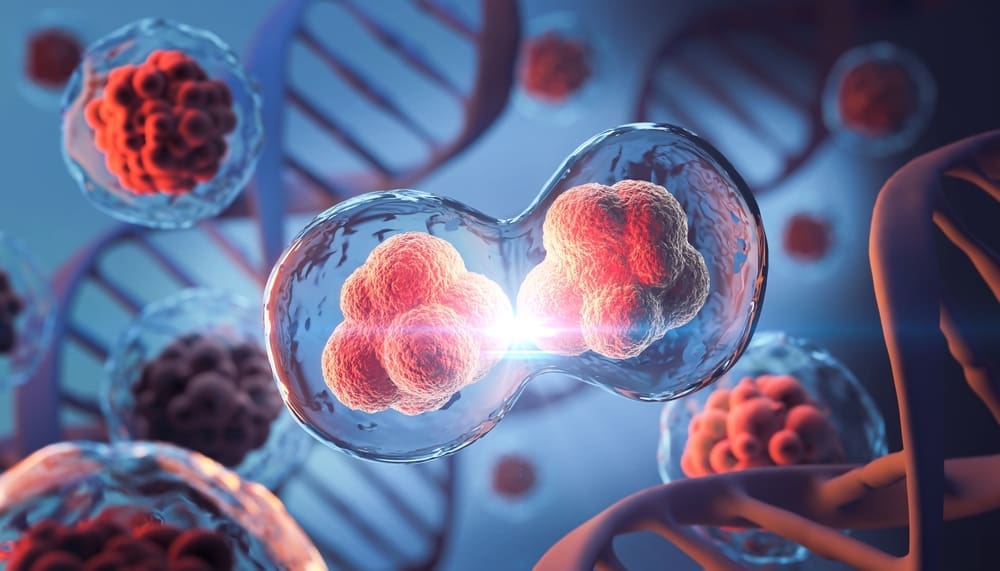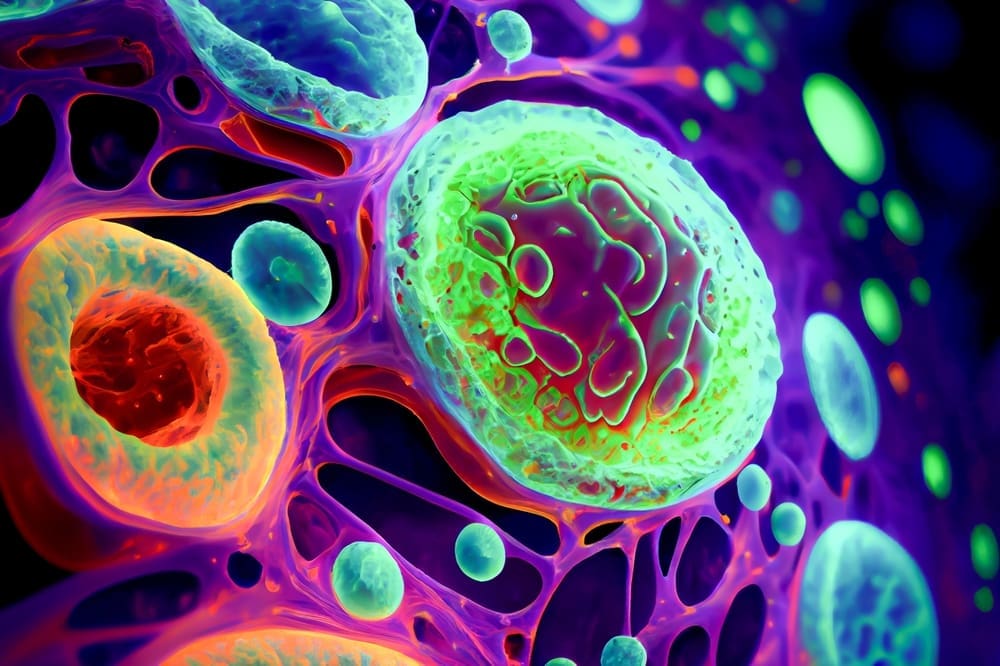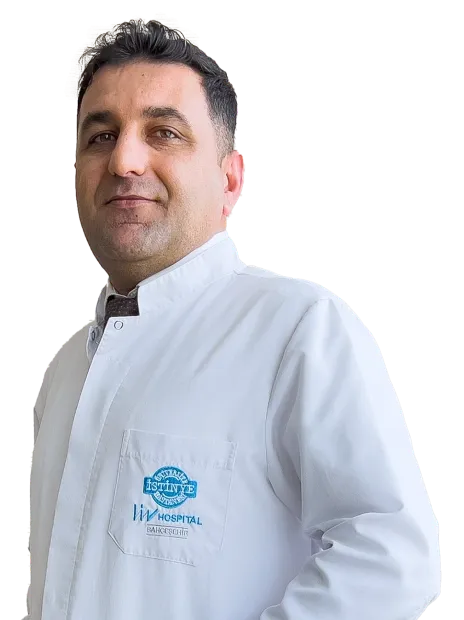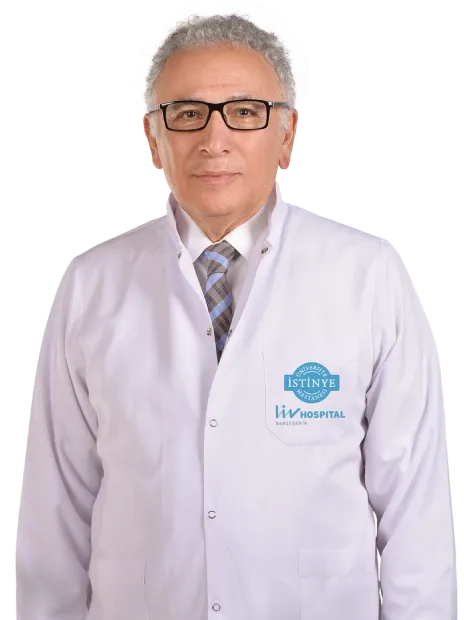Stem cells are the body’s building blocks, turning into different cell types. Studies show that some natural substances can boost stem cell activity. This could lead to better health. A study found that black tea might help grow more stem cells.

Learning how to naturally increase stem cells is important. Some herbs could help with cell growth. Looking into these natural options can help keep stem cells healthy.
Key Takeaways
- Stem cells are key for health and growth.
- Black tea might help stem cells grow more.
- Some herbs could help with cell growth.
- Researching natural ways to boost stem cells is growing.
- Knowing about natural remedies helps keep stem cells healthy.
Understanding Stem Cells and Cell Regeneration
To understand cell regeneration, we must first know about stem cells. Stem cells can turn into different cell types. They are key in growth, fixing tissues, and keeping us healthy.
What Are Stem Cells?
Stem cells can grow themselves and become specialized cells. There are two kinds: embryonic stem cells, which can become any cell, and adult stem cells, which help fix and grow tissues.
The Importance of Cell Regeneration in Health
Cell regeneration keeps our tissues healthy and fixes damaged ones. It’s essential for healing from injuries and diseases. How well stem cells work affects our ability to heal.
Studies show that some natural substances can help stem cells work better. For example, polyphenols in teas and herbs might boost stem cells and improve cell health.
How Natural Compounds Influence Stem Cell Function
Natural substances, like those in black tea, can affect stem cells in many ways. They can help stem cells grow, live longer, and become specific cell types.
| Compound | Source | Effect on Stem Cells |
| Polyphenols | Black Tea, Green Tea | Antioxidant effects, boosting stem cell function |
| Ginsenosides | Ginseng | Promoting stem cell growth |
| Ashwagandha Extracts | Ashwagandha | Improving cell strength and stress response |
Learning how these natural compounds work helps us find natural remedies for cell rejuvenation. It also shows how stemcell drinks benefits can improve our cell health.
The Science Behind Black Tea and Cellular Health
Black tea’s effect on cellular health is complex. It involves many compounds that help cells grow back. This tea is famous for its unique taste and smell. It’s packed with bioactive compounds that affect how cells work.
Key Compounds in Black Tea
Black tea has a mix of polyphenols, like theaflavins and thearubigins. These are made when the tea ferments. They’re known for their antioxidant properties, which protect cells from damage.
Polyphenols and Their Cellular Effects
The polyphenols in black tea affect cells in many ways. They help with cell survival and growth. Theaflavins are special because they fight inflammation, helping cells stay healthy.
Research shows these compounds can help stem cells work better. This could support cell growth. The exact ways they work are being studied, but the results look promising for cell health.
The Fermentation Process and Its Impact on Bioactivity
The way black tea is made changes its compounds. Fermentation turns the polyphenol profile into theaflavins and thearubigins. This changes the tea’s taste, color, and health benefits.
Studies show fermentation can make black tea’s compounds more active. This could boost their health benefits for cells. Knowing how fermentation works is key to understanding black tea’s role in cellular repair.
Does Black Tea Actually Stimulate Stem Cells? Current Evidence
Black tea is a popular drink that might help with stem cells and cell health. It has many compounds that could help cells grow and repair. This makes it interesting for studying.

Direct Studies on Black Tea and Stem Cell Function
Many studies have looked into black tea and stem cells. They found that black tea’s compounds can boost stem cell activity. This could help with cell growth and repair.
Polyphenols in black tea are good for stem cells. They help keep stem cells healthy.
- Black tea extracts can make more stem cells.
- Its antioxidants protect stem cells from damage.
Indirect Mechanisms of Support
Black tea also helps stem cells in other ways. Its anti-inflammatory effects make a better environment for stem cells. It also helps the immune system, which is good for cell health.
- It reduces inflammation that can hurt stem cells.
- It improves overall cell health, helping stem cells too.
Limitations of Existing Research
Even though the research looks good, there are some issues. Most studies were done in labs or on animals. We need more studies on people to really understand black tea’s effects.
Also, how black tea is made and what’s in it can affect its impact. More research is needed to figure this out.
As we learn more, we’ll understand how botanicals for cellular regeneration like black tea work. Studying potent herbs for cell growth with black tea could lead to new ways to keep cells healthy.
Mechanisms of Action: How Black Tea May Influence Stem Cells
Research shows black tea affects stem cells in complex ways. It’s full of bioactive compounds that can change how stem cells work. This is through several different actions.
Antioxidant Properties and Stem Cell Protection
Black tea is packed with antioxidants. These compounds are key in keeping stem cells safe from damage. Theaflavins and thearubigins in black tea fight off harmful free radicals. This helps keep stem cells healthy and able to change into different cell types.
Oxidative stress can harm stem cells, making them less effective. Black tea’s antioxidants help reduce this stress. This is important for keeping stem cells working well, which is key as we age.
Anti-inflammatory Effects and Cellular Regeneration
Chronic inflammation can stop cells from regenerating. Black tea’s anti-inflammatory properties help control this. Polyphenols in black tea lower inflammation and help the immune system stay balanced.
This anti-inflammatory effect is key for cell repair and growth. It helps the body fix and grow tissues better. This can improve our overall health and how well we bounce back from illness.
| Compound | Effect on Stem Cells | Potential Benefit |
| Theaflavins | Antioxidant protection | Enhanced stem cell survival |
| Thearubigins | Anti-inflammatory action | Improved cellular regeneration |
| Polyphenols | Modulation of epigenetic factors | Regulation of stem cell differentiation |
Epigenetic Modifications and Stem Cell Function
Epigenetic changes are important for stem cell function. Some compounds in black tea might affect these changes. Epigenetic modulation can influence gene expression, affecting stem cell activity.
Black tea’s impact on epigenetic marks is an exciting area of study. It could help us understand how it supports healthy cell growth. This could also help in preventing or treating diseases.
Herbal remedies like black tea are promising for stem cell health. By understanding how black tea works on stem cells, we see its value as a herbal solution for healthy cells.
Best Herbs for Cell Regeneration: A Guide
Keeping our cells healthy is key to feeling good. Some herbs are great at helping with this. They are being studied for their benefits.
Criteria for Selecting Regenerative Herbs
Choosing herbs for cell health involves a few things. We look at their antioxidant power, stem cell support, and anti-inflammatory effects. Antioxidants protect cells from harm.
We check the research on these herbs. This makes sure they are safe and work well.
Top-Performing Herbs Based on Research
Some herbs are really good for cell health. Here are a few:
- Ashwagandha: It helps with stress and is good for energy.
- Ginseng: It boosts energy and helps with stem cells.
- Turmeric: It has curcumin, which fights inflammation and protects cells.
These herbs help in many ways, like fighting stress and keeping cells healthy.
Comparing Potency and Effectiveness
It’s helpful to compare these herbs. Here’s a table showing their strengths:
| Herb | Antioxidant Capacity | Anti-inflammatory Effects | Stem Cell Support |
| Ashwagandha | High | Moderate | Yes |
| Ginseng | Moderate | High | Yes |
| Turmeric | High | High | Indirectly through anti-inflammatory action |
This comparison shows each herb’s unique benefits. It helps people choose based on their health needs.
Green Tea vs. Black Tea for Stem Cell Stimulation
Green tea and black tea come from the Camellia sinensis plant. They have different compositions that might affect their ability to boost stem cells. Knowing these differences is key for those looking into plant-based cell rejuvenation.
Catechin Content Differences
Green tea has more catechins, like epigallocatechin gallate (EGCG), because it’s processed less. Black tea, on the other hand, loses most of its catechins during fermentation.
Catechin Content Comparison
| Tea Type | Catechin Content | EGCG Content |
| Green Tea | High | High |
| Black Tea | Low | Low |
Comparative Studies on Cellular Effects
Studies have looked at how green tea and black tea affect cells. Green tea’s EGCG is linked to its health benefits. Black tea’s theaflavins might help with heart health and possibly stem cell stimulation.
- Green tea’s antioxidants may help stem cells.
- Black tea’s theaflavins might be good for heart health.
In summary, both green and black tea could help with stem cell stimulation. They do it through different ways and compounds. Knowing these differences helps people pick the best tea for their needs in plant-based cell rejuvenation.
Adaptogenic Herbs and Their Impact on Cellular Health
Adaptogenic herbs play a key role in improving cellular health. They have been used for centuries to boost well-being and resilience. Recent research has shed light on how these herbs help cells, focusing on stem cell function and stress response.
Ashwagandha and Cellular Resilience
Ashwagandha is a top adaptogenic herb, known for boosting cell resilience. Studies show it protects cells from oxidative stress, supporting stem cell health. It works by boosting antioxidants and regulating stress genes.
Ginseng’s Effects on Stem Cell Proliferation
Ginseng also impacts stem cell growth. Research suggests it can boost stem cell numbers, aiding in tissue repair. Ginsenosides in ginseng are key, supporting stem cell health through various pathways.
Rhodiola Rosea and Cellular Stress Response
Rhodiola rosea helps manage cell stress. It reduces stress effects on cells, keeping stem cells healthy. It does this by affecting stress genes and boosting antioxidants.
In summary, herbs like ashwagandha, ginseng, and rhodiola rosea are great for cell health. They improve resilience, support stem cell growth, and manage stress. This can lead to better overall health and support the body’s regenerative processes.
How to Boost Stem Cells Naturally Through Diet
Eating the right foods can boost stem cells naturally. This supports your overall health and wellness. Foods rich in essential nutrients help stem cells work better, leading to better cell regeneration and health.
Nutritional Factors That Support Stem Cell Function
Nutrients are key to keeping stem cells healthy. Vitamins and minerals like Vitamin D, Vitamin C, and zinc are vital. They help stem cells function well and keep cells healthy.
Key Nutrients for Stem Cell Health:
- Vitamin D: Essential for stem cell differentiation
- Vitamin C: Important for collagen synthesis and as an antioxidant
- Zinc: Supports immune function and cellular regeneration
- Omega-3 fatty acids: Anti-inflammatory effects supporting cellular health
Dietary Patterns for Optimal Cellular Health
Eating a balanced diet is key for stem cell health. Foods like fruits, vegetables, whole grains, and lean proteins give the needed nutrients. They help cells function at their best.
“A healthy diet is fundamental to maintaining the body’s natural ability to regenerate and repair cells.”
| Dietary Component | Benefit to Stem Cells |
| Fruits and Vegetables | Rich in antioxidants and vitamins supporting cellular health |
| Whole Grains | Provide fiber and essential minerals |
| Lean Proteins | Support cellular regeneration and repair |
Combining Herbs with Supportive Foods
Mixing potent herbs with supportive foods boosts their benefits. Herbs like green tea and ginseng work well with foods like fruits, vegetables, and whole grains. This combo supports stem cell health.
For instance, drinking green tea with a meal high in vitamin C boosts antioxidants. This supports overall cell health.
Potent Herbs for Cell Renewal Beyond Tea
Tea is famous for its health benefits, but other herbs and plants also help with cell renewal. Exploring these natural remedies can offer a more complete approach to keeping cells healthy.
Medicinal Mushrooms and Stem Cell Support
Medicinal mushrooms are being studied for their role in supporting stem cells. Reishi, Chaga, and Cordyceps are top choices because of their immune-boosting and antioxidant effects.
A study on Cordyceps sinensis showed it can help stem cells grow and change. This makes it interesting for regenerative medicine.
Berries and Their Regenerative Compounds
Many berries are packed with antioxidants and compounds that help cells regenerate. Blueberries, Goji berries, and Acai berries stand out for their anthocyanins and other beneficial compounds.
Research indicates these berries can protect cells from damage caused by oxidative stress. This could help with natural cell renewal.
Lesser-Known Botanicals with Promising Research
There are many lesser-known plants that show promise for cell health. Ashwagandha, Ginseng, and Rhodiola are adaptogenic herbs studied for their role in cell resilience and regeneration.
| Botanical | Key Compounds | Potential Benefits |
| Reishi Mushroom | Beta-glucans, Triterpenes | Immune modulation, Antioxidant effects |
| Blueberries | Anthocyanins, Flavonoids | Antioxidant effects, Cellular protection |
| Ashwagandha | Withanolides, Alkaloids | Cellular resilience, Stress response modulation |
Herbal Supplements for Cellular Repair: Forms and Formulations
Herbal supplements come in many forms to help with cellular health. As scientists learn more about plant-based cell regeneration, new products are being made. These products aim to help cells rejuvenate.
Teas and Infusions
Teas and infusions are old but effective ways to support cells. For example, green tea is known for its antioxidants. These help protect stem cells from harm.
“Green tea’s antioxidants help stem cells work better and grow,” studies say.
Tinctures and Extracts
Tinctures and extracts give a strong dose of herbal benefits. They are great for cell rejuvenation herbs. Ashwagandha extract, for instance, helps cells deal with stress.
- Ashwagandha for stress reduction and cellular protection
- Ginseng for boosting stem cell growth
- Rhodiola Rosea for better handling of cellular stress
Standardized Supplements and Considerations
Standardized supplements give a set amount of active compounds. This ensures they work well and consistently. It’s important to look at how they are made, how well they are absorbed, and if they can interact with other medicines.
A study on Calecim for skincare shows how important the right mix and absorption are. “A supplement’s success depends on its mix and how well its ingredients are absorbed.”
In summary, there are many herbal supplements to choose from for better cell health. Knowing about the different types helps people make smart choices for their health.
Stemcell Drinks Benefits: Separating Facts from Marketing
Stem cell drinks are getting more popular, but it’s important to know what’s real and what’s not. As buyers, we need to see what these drinks really offer for our cells.
Commercial Products and Their Claims
The market is full of stem cell drinks, each with its own promises. Some include powerful herbs for cellular repair like ashwagandha and ginseng. Others have green tea extract, packed with antioxidants.
It’s important to look past the marketing and check the ingredients and how much is in them. Knowing what’s in the product and how it’s made helps us judge if it works.
Evaluating Efficacy and Safety
To see if stem cell drinks really work, we need to look at the science behind them. This means understanding how antioxidant herbs for cell health like turmeric and rosemary help our cells.
Safety is also key. Different ingredients can sometimes cause problems. It’s important to know if these drinks can interact with medicines or cause other issues.
In short, stem cell drinks might have benefits, but we need to be careful. By knowing what’s in them and how they work, we can choose wisely for our health.
Safety Considerations and Possible Interactions
Adding organic herbs for cellular regeneration to your routine is great. But, it’s important to think about safety first. These herbs can help your cells but might also affect your meds or health issues.
Contraindications for Specific Herbs
Some top herbs for regenerating cells might not be good for everyone. For example:
- Ashwagandha: It might not be safe with thyroid meds and should be careful for those with thyroid problems.
- Ginseng: It can mess with blood thinners and diabetes meds, so watch out.
- Rhodiola Rosea: It might make bipolar worse and should be used with care if you have mental health issues.
Interactions with Medications
Herbal supplements can mess with your meds, leading to bad side effects. Here are some key ones to know:
- Anticoagulant meds: Herbs like ginseng and ginkgo biloba can make bleeding risk higher when with blood thinners.
- Diabetes meds: Ginseng, for example, can lower blood sugar, which might affect diabetes meds.
- Blood pressure meds: Licorice root can change blood pressure, which might interact with hypertension meds.
Special Considerations for Different Health Conditions
People with certain health issues should be careful with organic herbs for cellular regeneration. For instance:
| Health Condition | Herbs to Use with Caution |
| Pregnancy | Certain herbs like ginseng and ashwagandha may not be suitable during pregnancy. |
| Autoimmune Disorders | Immunomodulatory herbs like echinacea may need to be used cautiously. |
| Cardiovascular Disease | Herbs that affect blood pressure or clotting should be used under medical supervision. |
Knowing about these interactions and contraindications helps you use top herbs for regenerating cells safely. This way, you can enjoy their benefits without risks.
Conclusion: Integrating Herbs for Cellular Health into Your Wellness Routine
Adding the best herbs for cell regeneration to your daily routine can boost your health. Herbs like black tea and adaptogens help support stem cells and cell growth. They offer a natural way to improve your body’s repair and rejuvenation.
By adding these herbs to your diet, you can help your body fix and refresh cells. You can do this by drinking teas, taking tinctures, or using supplements with these herbs.
When you start using herbal remedies for cell health, know about possible interactions and side effects. Making smart choices lets you use these natural compounds to help your overall health.
FAQ
What are stem cells and why are they important for overall health?
Stem cells can turn into different cell types. They play a key role in fixing and growing tissues. They help replace old or damaged cells, aiding in the body’s healing.
What are the key compounds in black tea that may stimulate stem cells?
Polyphenols in black tea, such as theaflavins and thearubigins, are key. They are made during fermentation. These compounds have antioxidant and anti-inflammatory effects, which may help stem cells.
How does the fermentation process impact the bioactivity of black tea compounds?
Fermentation in black tea production changes its compounds. It lowers catechin levels but creates theaflavins and thearubigins. These new compounds may help stem cells.
Are there any direct studies on black tea and stem cell function?
Direct studies on black tea and stem cells are few. But, research shows black tea extracts can help stem cells grow and change. They also protect stem cells from damage.
Can dietary choices really support stem cell health?
Yes, what you eat can help stem cells. Foods rich in antioxidants and vitamins support stem cell function. Eating whole foods is also good for cell health.
What are some potent herbs and botanicals beyond tea that may support cell renewal?
Beyond tea, reishi and cordyceps mushrooms, berries, and herbs like astragalus and schisandra are promising. They may help stem cells and support cell renewal.
What forms and formulations of herbal supplements are available for cellular repair?
You can find herbal supplements for repair in teas, tinctures, and extracts. Each type has its own benefits and considerations.
How can one evaluate the efficacy and safety of commercial stem cell drinks?
To check if stem cell drinks work and are safe, look at the ingredients and their amounts. Also, consider the maker’s reputation and any scientific data.
Are there any safety considerations or potentially harmful interactions with using herbs for cellular regeneration?
Yes, using herbs for cell repair can be safe but needs caution. Some herbs may not be good for certain health issues or can interact with medicines. Always use them wisely.
What are some of the top herbs for cellular regeneration and how do they compare in potency and effectiveness?
Green tea, ashwagandha, ginseng, and rhodiola rosea are top choices. Their strength and effectiveness depend on the herb, how it’s prepared, and your health. It’s important to compare them carefully.




































